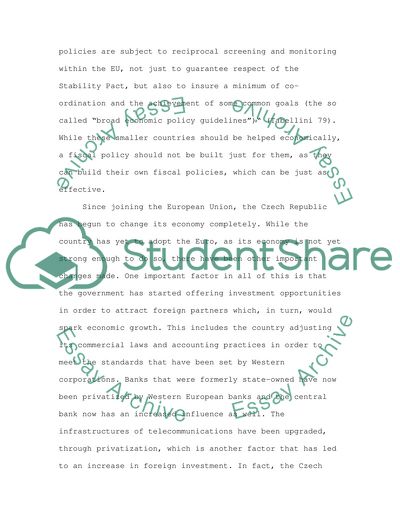Cite this document
(The Monetary Union Needs a Common Fiscal Policy Coursework, n.d.)
The Monetary Union Needs a Common Fiscal Policy Coursework. https://studentshare.org/politics/1710589-some-countries-have-argued-that-the-monetary-union-needs-a-common-fiscal-policy-to-match-the-common-monetary-policy-evaluate-this-view
The Monetary Union Needs a Common Fiscal Policy Coursework. https://studentshare.org/politics/1710589-some-countries-have-argued-that-the-monetary-union-needs-a-common-fiscal-policy-to-match-the-common-monetary-policy-evaluate-this-view
(The Monetary Union Needs a Common Fiscal Policy Coursework)
The Monetary Union Needs a Common Fiscal Policy Coursework. https://studentshare.org/politics/1710589-some-countries-have-argued-that-the-monetary-union-needs-a-common-fiscal-policy-to-match-the-common-monetary-policy-evaluate-this-view.
The Monetary Union Needs a Common Fiscal Policy Coursework. https://studentshare.org/politics/1710589-some-countries-have-argued-that-the-monetary-union-needs-a-common-fiscal-policy-to-match-the-common-monetary-policy-evaluate-this-view.
“The Monetary Union Needs a Common Fiscal Policy Coursework”. https://studentshare.org/politics/1710589-some-countries-have-argued-that-the-monetary-union-needs-a-common-fiscal-policy-to-match-the-common-monetary-policy-evaluate-this-view.


